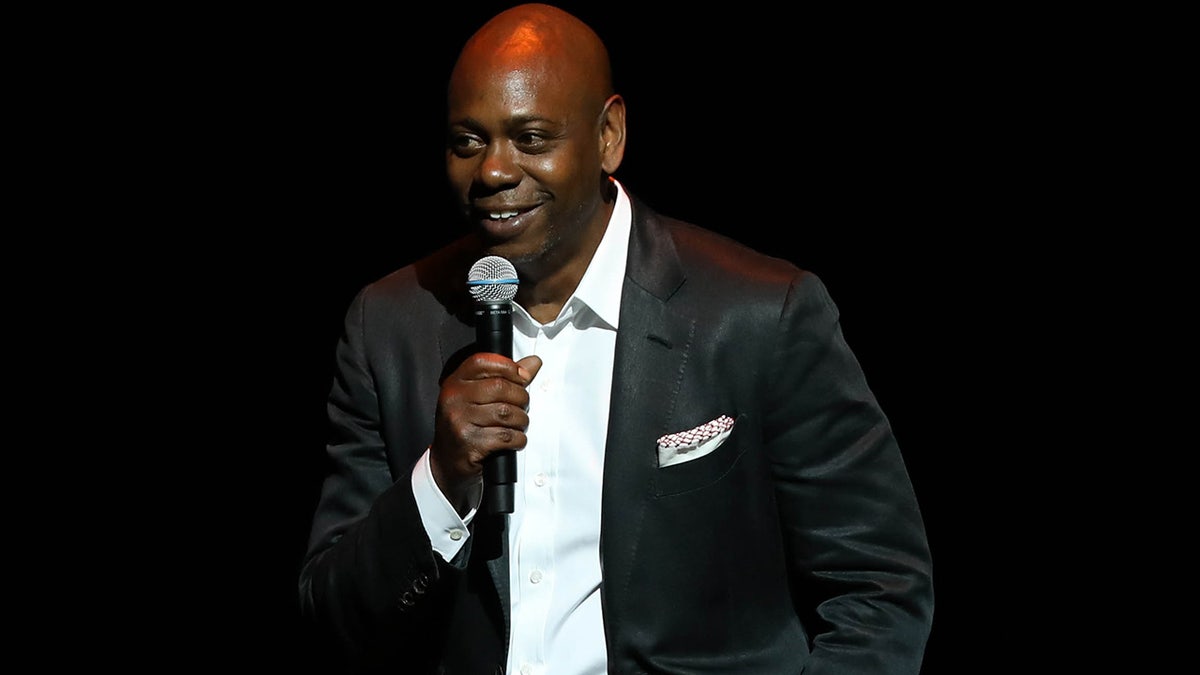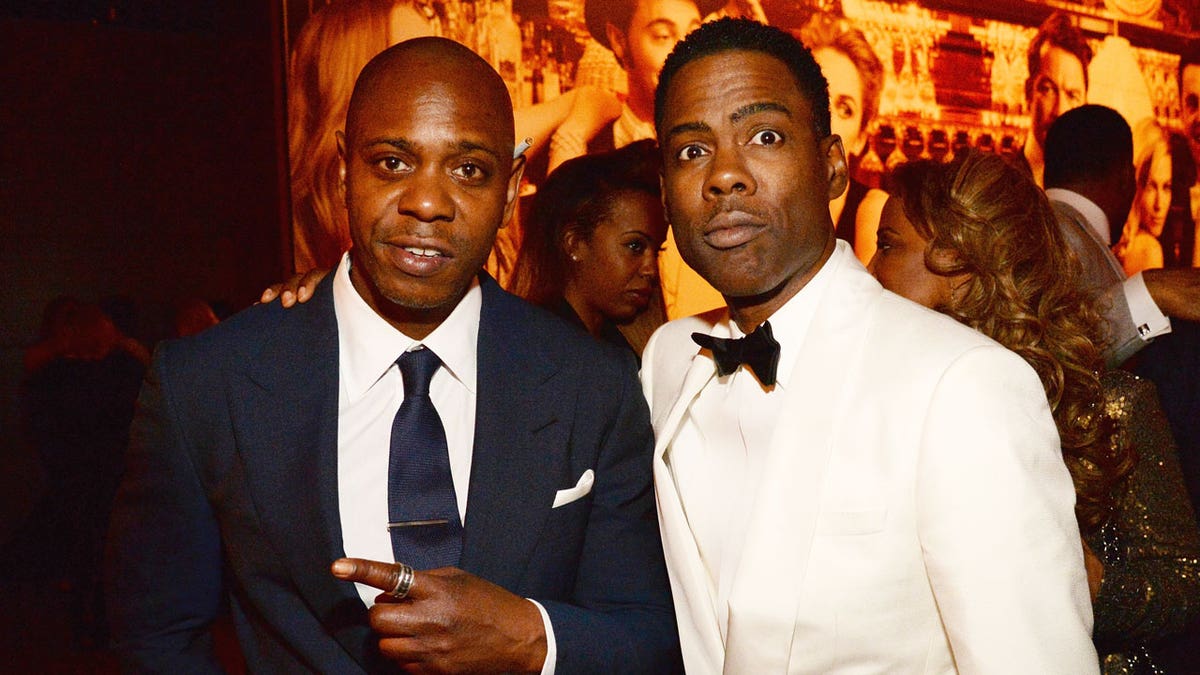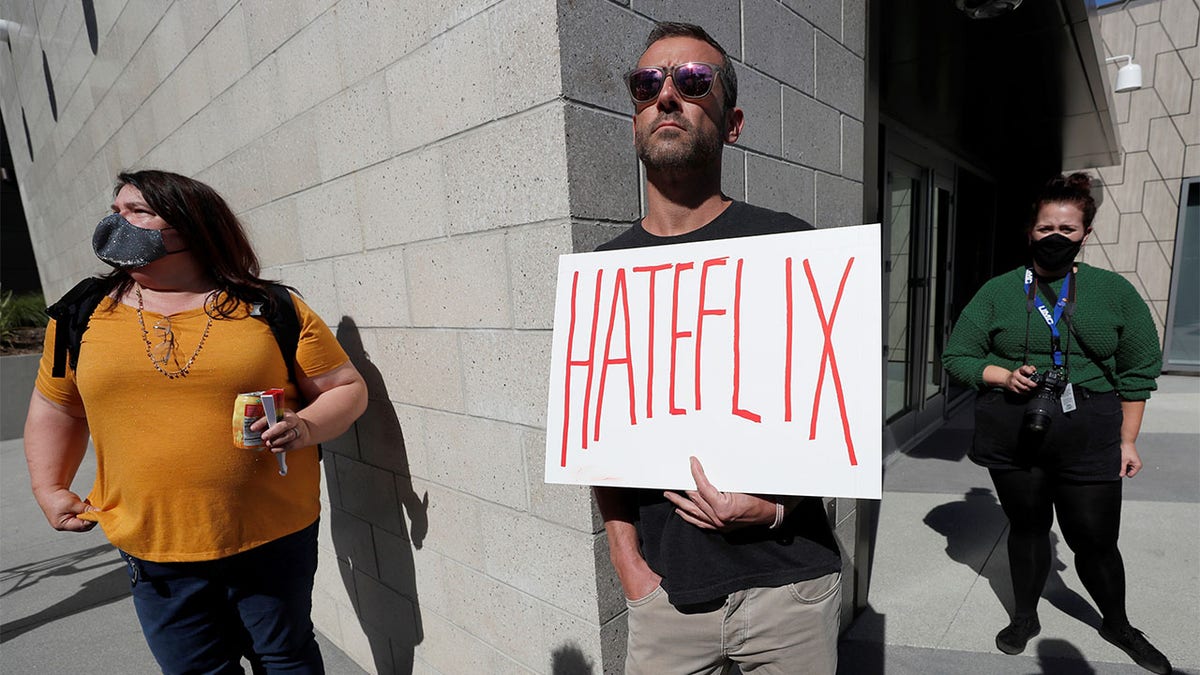
Dave Chappelle was supported by the comedy community after he was canceled by a local Minnesota venue earlier this week. He was pictured at a theatre dedication ceremony at his alma mater in June. (Brian Stukes)
In an opinion column for Newsweek, Foundation for Individual Rights and Expression president and CEO Greg Lukianoff blasted the cancellation of Dave Chappelle’s stand-up comedy show last week, claiming that the move is a "victory for conformity."
Lukianoff published his column less than a week after the cancellation of Dave Chappelle’s scheduled comedy performance by the First Avenue venue in Minneapolis last Wednesday.
Just ahead of the show, critics from the left blasted First Avenue for allowing the controversial figure to perform. Chappelle has been labeled transphobic by the left for jokes made during his recent Netflix specials.
Though the First Avenue show had completely sold out the night before, the venue pulled the plug on the performance at the behest of the leftist critics.
DAVE CHAPPELLE SHOW CANCELED BY MINNESOTA VENUE HOURS BEFORE GIG FOLLOWING CRITICISM
Lukianoff began his column by comparing the Chappelle cancellation to several other landmark cancellations in pop culture history to illustrate his disagreement with those who insisted First Avenue’s actions were justified.
"Imagine these headlines," he began, writing, "Salman Rushdie dumped by publisher after The Satanic Verses offends the Ayatollah of Iran. Victory for free expression! Lenny Bruce's sold-out show in New York City canceled after religious staffers at the club decry foul language. Victory for artistic expression!"
Lukianoff then stated, "You'd have to have a pretty odd sense of history to consider any of those could-have-been scenarios as victories for freedom of expression. Yet a surprising number of people are asserting exactly that when it comes to a Minneapolis venue called First Avenue that canceled Dave Chappelle's comedy show this week."
The author named several of these individuals, including podcaster Michael Hobbes and college professors Kevin Gannon and Isaac Bailey, who insisted that the First Avenue employees complaining and getting Chappelle canceled "used their free expression to stand up for what they believe is right."
Lukianoff acknowledged that "Nobody is denying that the employees have the First Amendment right to demand the show be canceled," but asserted that canceling artists is not good for free expression in general.
"But do we really think a publisher dropping Salman Rushdie, a comedy club dumping Lenny Bruce, or a concert venue dumping Prince in the face of demands from critics would not be a net loss for free expression?" he asked.

Dave Chappelle and Chris Rock, who are going on tour together in September, attended the Vanity Fair Oscar Party at the Wallis Annenberg Center for the Performing Arts on Feb. 28, 2016, in Beverly Hills, California. (Kevin Mazur)
DAVE CHAPPELLE, JOE ROGAN FANS PUSH BACK ON CANCEL CULTURE: ‘YOU CAN’T BOW TO THE MOB’
He then claimed, "But simply because the First Amendment—rightly!—doesn't require clubs to host comedians doesn't mean that canceling a show in the face of social pressure is an equally good outcome for free expression."
The author also pointed out the irony in First Avenue’s history of "promoting controversial artists." He noted, "First Avenue has long been known for promoting controversial artists, most notably, Prince, the artist whose work is arguably most responsible for prompting the 1980s-era congressional hearings on music decency and even the ‘Parental Advisory’ label on albums."
Lukianoff defended Chappelle, stating that he and other "transgressive" comedians "are unique in their willingness to wade into sensitive topics like race and transgender issues, which most people are unwilling to talk openly about for fear of social consequence."
CLICK HERE TO GET THE FOX NEWS APP
"If one of the most popular comedians alive today can quite literally be canceled for his expression, imagine the chilling message that sends to the thousands of other artists of all kinds who might have transgressive or unpopular ideas," he declared.
Lukianoff also claimed that people in an "earlier era" would have seen Chappelle’s cancellation as a "victory for conformity." He concluded his piece by claiming that people have the "moral responsibility" to "push back against those who would attempt to decide for everyone what is fit to be heard."

Dave Briggs holds a placard in support of the Netflix transgender employee walkout to protest the streaming of comedian Dave Chappelle's comedy special, in Los Angeles, California, Oct. 20, 2021. (Reuters/Mario Anzuoni)










































